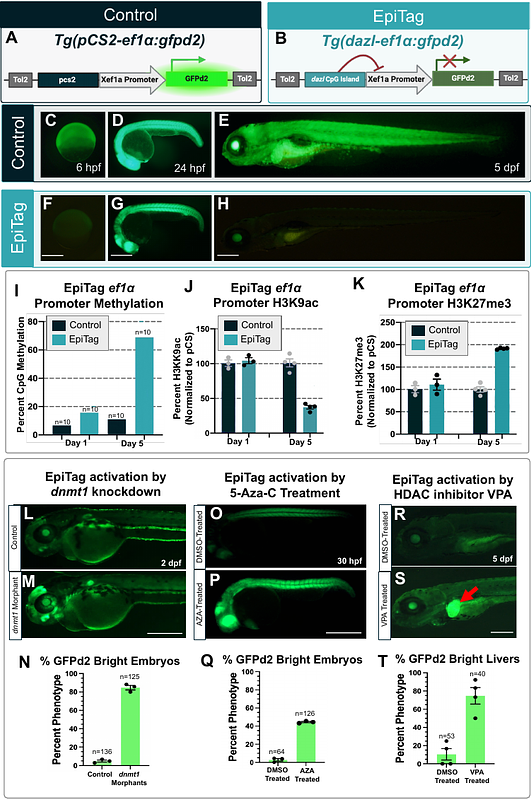A novel transgenic reporter to study vertebrate epigenetics

A novel transgenic reporter to study vertebrate epigenetics
Marvel, M.; Gore, A. V.; Taimatsu, K.; Castranova, D.; Margolin, G.; Goldstein, A.; Swearer, A. A.; Carpinello, O.; Combs, J.; Detels, M.; Greenspan, L. J.; Parker, A.; Kim, Y. A.; Khor, J. M.; Davis, A. E.; Kenton, M. I.; Prevedel, J.; Barnes, K.; Iben, J. R.; Li, T.; Faucz, F. R.; Dale, R.; Weinstein, B. M.
AbstractEpigenetic reprogramming contributes to the generation of cellular diversity during vertebrate development but the mechanisms directing this are still not well understood. Large-scale genetic screens have been highly successful in identifying epigenetic regulatory genes in invertebrates such as worms and flies, but similar large-scale genetic screens to identify epigenetic regulators have not been carried out in vertebrates. Here we report a newly generated \"EpiTag\" zebrafish transgenic reporter line that permits easy cellular-level visualization of epigenetic silencing or activation in living animals during development, gametogenesis, and regeneration. We use the EpiTag reporter to carry out an F3 ENU mutagenesis screen for epigenetic silencing or activating mutants, identifying relevant vertebrate tissue-specific epigenetic regulatory genes including a new epigenetic model for metabolic dysfunction-associated fatty liver disease (MAFLD). The EpiTag reporter line represents a powerful new tool for genetic and experimental analysis of tissue-specific epigenetic gene regulation in vertebrates.